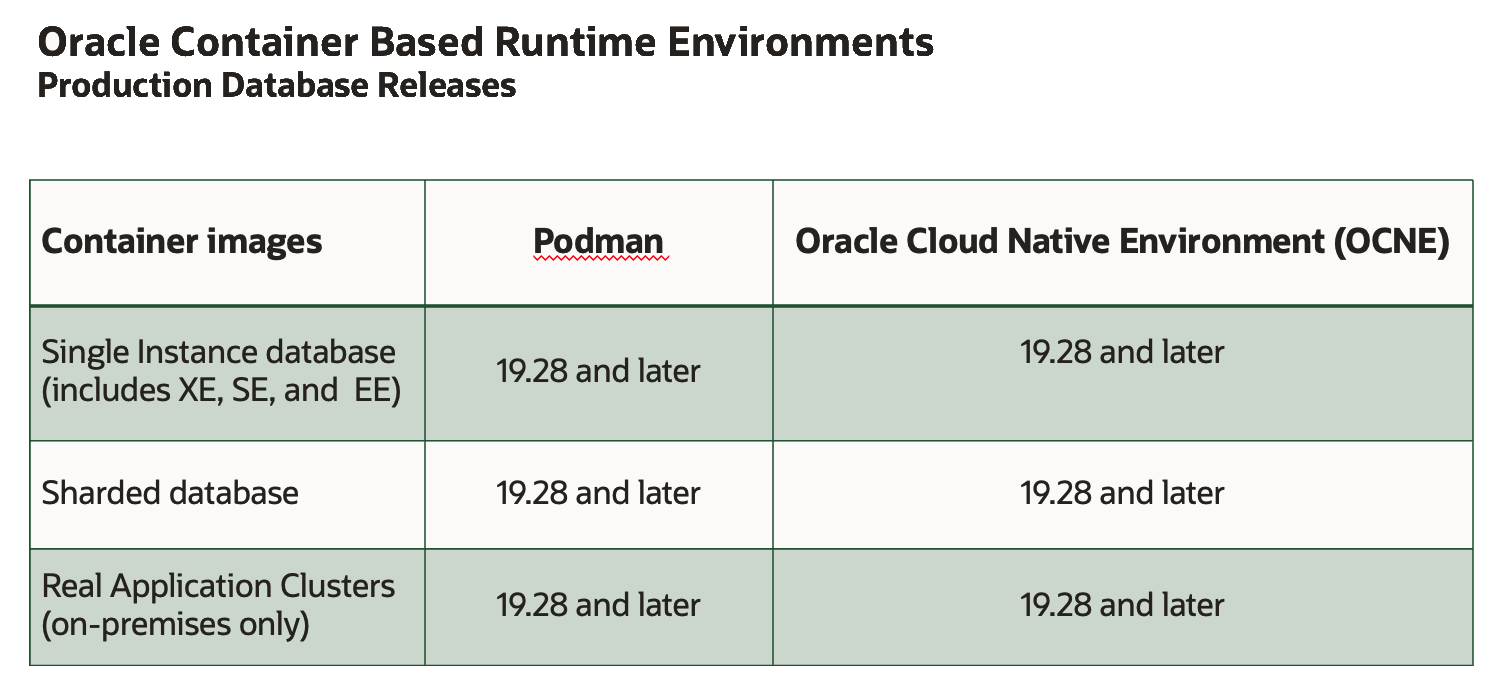Running Oracle RAC on OCNE enables you to combine Oracle’s database clustering strengths with the speed and flexibility of container orchestration. With careful network, storage, and security configuration—and adherence to Oracle’s supported matrix—you can achieve a cloud-native, highly available database foundation for your mission-critical applications.
Introduction
Oracle Real Application Clusters (Oracle RAC) is a proven solution for high availability, scalability, and reliability for Oracle databases. Modern enterprises are increasingly moving workloads to Kubernetes and cloud-native technologies. Oracle Cloud Native Environment (OCNE) – Oracle’s Kubernetes distribution – empowers organizations to deploy, manage, and scale Oracle RAC databases in a cloud-native landscape, leveraging containerization, automation, and robust networking.]
In the era of digital transformation, the pace of business is dictated by agility, reliability, and the ability to scale. For enterprises whose success depends on mission-critical applications and data, downtime is not an option. This is where Oracle RAC running on OCNE delivers a game-changing proposition.
Unlocking High Availability for the Digital Enterprise
Oracle RAC has long been recognized across industries for its ability to ensure continuous database availability. Traditionally, this meant complex hardware and networking, but with cloud-native platforms now driving IT innovation, Oracle brings the power of RAC to Kubernetes, orchestrated through OCNE.
Key Business Benefits
- Maximum Uptime for Critical Applications: With Oracle RAC on OCNE, your database isn’t limited to a single server. Even if hardware fails, your applications stay available, minimizing both planned and unplanned downtime.
- True Cloud-Scale Flexibility: Modern markets can’t afford IT bottlenecks. OCNE lets you flex resources up or down as demands fluctuate, whether because of seasonal peaks, rapid growth, or new business ventures.
- Accelerated Innovation through Containerization: By running Oracle RAC in containers orchestrated by Kubernetes, IT and development teams can deploy, update, or migrate database workloads with far greater speed and confidence than legacy approaches.
- Reduce Operational Complexity: Traditional RAC deployments required intricate manual configurations. OCNE brings automation and repeatability, freeing up valuable IT staff to focus on innovation, not routine maintenance.
- Enhance Disaster & Recovery and Compliance: With native automation, secure networking, and simplified backup, enterprises can more easily meet strict RTO/RPO goals and regulatory standards—critical for financial services, healthcare, retail and more.
Key Technical Benefits
- Resilience: RAC nodes run in pods across multiple physical servers or VMs; no single host failure can bring down your service.
- Scalability: Easily add or remove RAC nodes as workloads change.
- Automation: Leverage OCNE orchestration, self-healing, and declarative configuration.
- Modern Networking & Storage: Multus, Flannel, and persistent storage integration provide robust networking and data management.
Business Use Case Examples
- E-commerce & Retail: Never lose a sale due to database downtime, even during Black Friday or holiday peaks.
- Financial Services: Support millions of transactions per day with zero planned disruption.
- Telecommunications: Guarantee reliable, round-the-clock access for customer management and billing systems.
- Healthcare: Ensure medical records and sensitive patient data remain instantly accessible and protected.
Why Oracle Cloud Native Environment (OCNE)?
- Certified Kubernetes Distribution: Delivers an Oracle-tested Kubernetes platform optimized for enterprise workloads and cloud deployments.
- Seamless Integration with Oracle Workloads: Designed and validated for Oracle Database, middleware, and applications, ensuring high compatibility and performance.
- Modular Architecture: Allows granular installation of components (Kubernetes, CRI-O, Multus, Istio, Flannel, etc.), so you deploy only what you need.
- Enterprise-Grade Security: Incorporates Oracle Linux security features, SELinux, role-based access control (RBAC), and automated security patching.
- Automated, Repeatable Deployments: OCNE simplifies lifecycle management (install, update, patch, scale) via declarative APIs and automation tools.
- True Hybrid Cloud Capability: Deploy and manage Kubernetes clusters consistently across on-premises, Oracle Cloud, and multicloud environments.
- Advanced Networking: Supports Multus for multi-network interfaces, Flannel for overlay networking, enabling robust application connectivity.
- Observability and Monitoring: Integrates with monitoring, logging, and alerting stacks for end-to-end visibility.
- Oracle Support: Backed by Oracle’s global enterprise support teams for both infrastructure and containers.
- Reduced Operational Costs: Automation and centralized management reduce administrative overhead and the risk of manual errors.
- Future-Proof Investment: Built on CNCF standards, ensuring long-term compatibility with evolving cloud-native technologies.
Future-Ready IT, Today
Investing in Oracle RAC on OCNE means you’re not just modernizing infrastructure—you’re enabling your business to move faster, respond to market needs, and deliver new services with confidence. The approach bridges the reliability of proven Oracle database solutions with the innovation velocity of cloud-native deployments.
The following table clarifies the supported configurations for Oracle Database on containerized solutions:

Conclusion
Running Oracle RAC on OCNE enables you to combine Oracle’s database clustering strengths with the speed and flexibility of container orchestration. With careful network, storage, and security configuration—and adherence to Oracle’s supported matrix—you can achieve a cloud-native, highly available database foundation for your mission-critical applications.
For more details, refer to the Official Oracle documentation and leverage Oracle tools and support resources.
